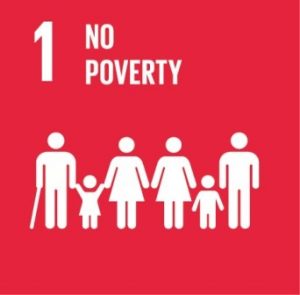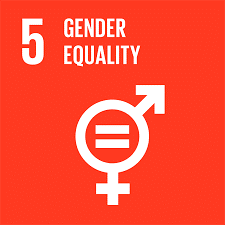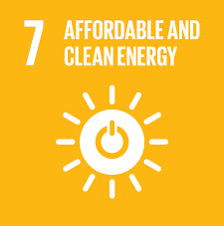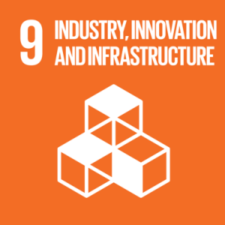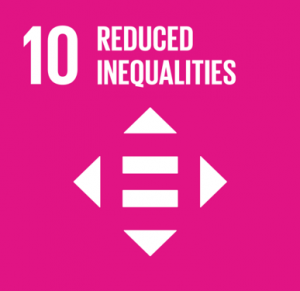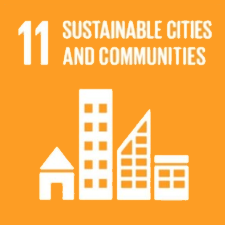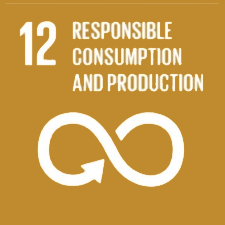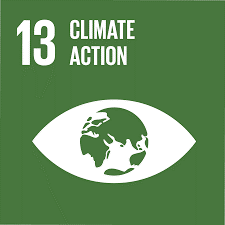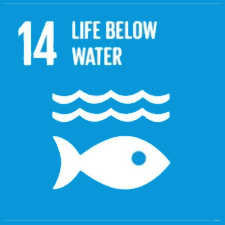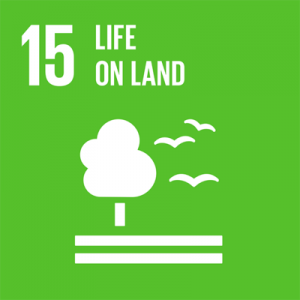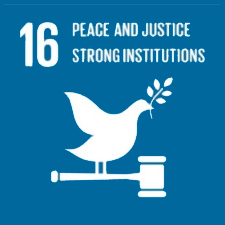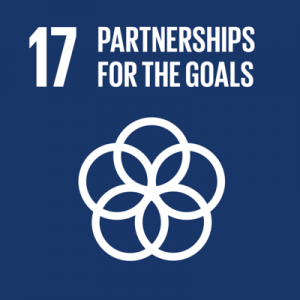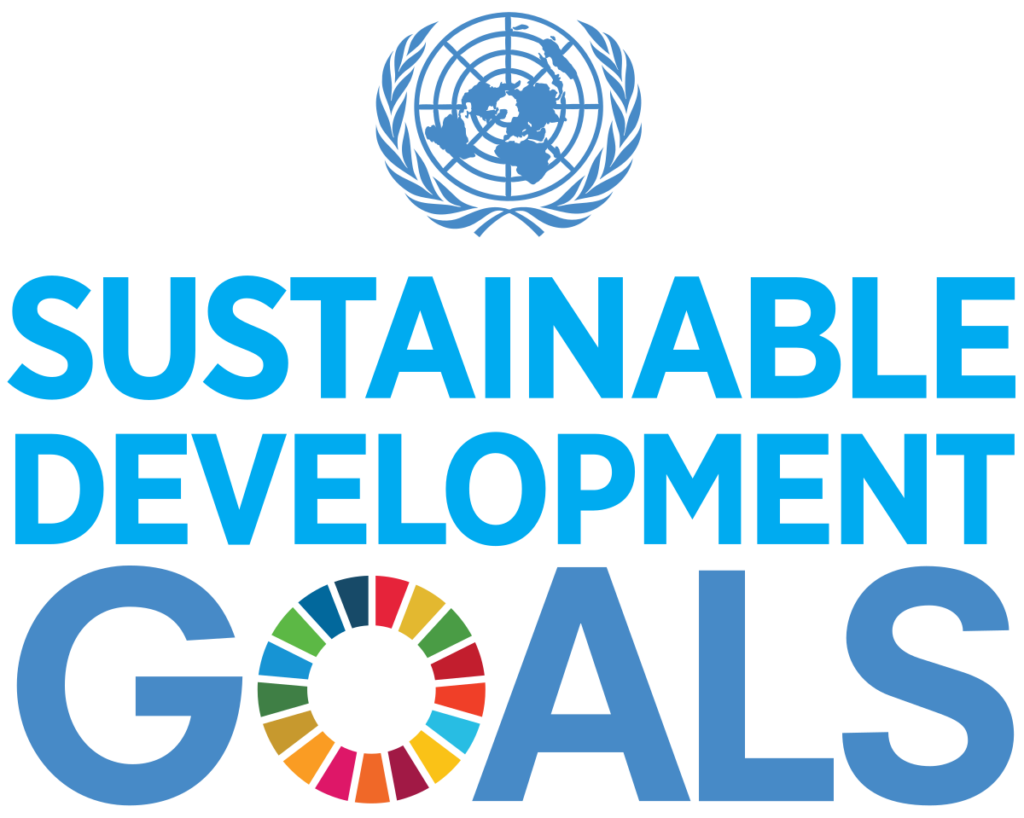SUSTAINABLE DEVELOPMENT GOALS
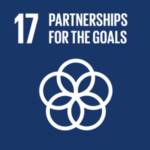
SDG 17: PARTNERSHIP FOR THE GOALS
“Sustainable development is the responsibility of every part of society, across the world. It cannot be achieved without linkages, across the goals, but also between institutions, governments, companies, NGOs, and people.”
(THE Impact Rankings)
Relationships to support the goals
IPB University has direct involvement in, or input into, national government or regional non-government organizations’ SDG policy development – including identifying problems and challenges, developing policies and strategies, modeling likely futures with and without interventions, monitoring and reporting on interventions, and enabling adaptive management:
IPB Experts’ direct involvement in SDGs policy making
- Decree of Ministry of National Development Planning / National Development Planning Agency concerning the Indonesia Expert Team for the Implementation of Sustainable Development Goals 2020-2024
- Decree of Ministry of Ministry of National Development Planning/National Development Planning Agency concerning Formation of the Implementation Team, Working Group and Expert Team for Sustainable Development Goals for 2017-2019 in Indonesia
- Decree of the Central Java Governor No:523/18/2021 concerning Central Java demersal fisheries management working group 2020-2025.
- Decree of the Minister of Environment and Forestry No:SK.382/MenLHK/PHPL/HPL.1/6/2019 concerning Multi-Business Forestry Expert Team in Production Forest.
- Decision of the Chairman of the Commission on Biosafety of Genetically Engineered Products (KKH PRG) number: Kep-06/KKH PRG/10/2019 concerning changes in the composition of the technical team for biosafety of genetically engineered products (TTKH PRG).
- Presidential Decree of the Republic of Indonesia Number 50/M of 2018 concerning dismissal and appointment in membership of the commission on biosafety of genetically modified products.
In addition to that, IPB University has also involved in several activities, as follows:
- IPB University supporting the Birth of A Sumatran Rhinoceros In Way Kambas National
Dr. drh. Muhammad Agil, MSc.Agr from School of Veterinary and Biomedical Reproductive monitored the Birth of Rhinoceros Calves in Sumatran Rhino in Sanctuary Way Kambas National Park. This is to support the policy of the Ministry of Environment and Forestry of Indonesia to save the Rhinos from extinction.

- Expert IPB was involved in preparing the Sustainable Fisheries Management Module
IPB expert, namely Dr. Muhammad Fedi A. Sondita, was involved in preparing the sustainable capture fisheries management module. This finalization activity was held mid-March 2022 to continue the discussion on December 21, 2021. This meeting was attended by various representatives from the Ministry of Maritime Affairs and Fisheries (KKP), AUP Polytechnic, Marine Stewardship Council (MSC), Indonesian Pole and Line and Handline Fisheries Association, and WWF Indonesia Foundation.
Sustainable management of capture fisheries from the Faculty of Fisheries and Marine Science, IPB University
Involvement in SDGs Policy Development
IPB University actively initiates and participates in cross-sectoral dialogue about the SDGs. Some of the activities, among others:
1. Bimonthly Talk on Sustainable Development Goals (SDGs)
Center for Transdisciplinary and Sustainability Science (CTSS) IPB University organized Bimonthly Talks on SDGs. These talks discussed various issues regarding SDGs. This is an initiative and platform for exchanging ideas and discussions with experts from multi stakeholders regarding SDGs implementation.
2. National Conference “Make Coasts, Small Islands and Seas as the Driver of Blue Economy”
CCRMS IPB University organized National Conference on Blue Economy in collaboration with the Ministry of Maritime Affairs and Fisheries, the Coordinating Ministry for Maritime Affairs and Investment, the Association of Indonesian Coastal Management Experts (HAPPI), the Leaders Forum of Indonesian Fisheries and Marine Universities and the DKI Jakarta Government. Through this activity, scientists from universities and research institutions as well as related stakeholders can exchange ideas, innovations and experiences in managing coastal and marine resources and small islands and SDG14.
3. International Conference on Biosciences
Department of Biology IPB University organizes the International Conference on Biosciences (ICoBIo) annually bringing together national and international scientists and practitioners on biosciences. For this year’s event, IPB collaborates with the Indonesian Biology Association and Universiti Putra Malaysia. Bioscience innovation must fulfill the goals of the SDGs, not only supporting economic added value but also supporting environmental and social goals.
IPB University has done much research on SDGs which were conducted under the international collaboration. This research has conducted data collection and measurement which are important as input in formulating solutions/interventions. Some of the international collaborations are multi-year and even long-term.
1. CRC 990-EFForTS Phase 3 “Landscape Assessment”
International research collaboration under CRC 990-EFForTS has entered the third phase, which involves IPB University, the University of Goettingen, Germany, the University of Jambi, and the University of Tadulako. The research mainly focuses on the Landscape Assessment (LA) activity, which aims to carry out an integrative scaling up to assess the dynamics of ecological and socio-economic functions in Jambi which includes a variety of land uses such as natural forests, shrubs, rubber plantations, and oil palm plantations on a wider scale (landscape).
2. Observation of Plastic Litter in the Citarum River (Upstream, Midstream, and Downstream) West Java
PPLH IPB University collaborates with The Norwegian Institute for Water Research (NIVA) and the Center for Southeast Asian Studies to observe and measure plastic litter in the Citarum River West Java, comprising upstream, midstream, and downstream.
Sustainability Report of Environmental Research Center (Page 1-2)
3. Developing an Integrated Strategic Instrument for Supporting The Integration of NDCs Into Development Plans and Policies
CCROM IPB University collaborates with Global Green Growth Institute to gather data and information to develop an integrated strategic instrument to support the integration of National Determined Contributions (NDCs) into development plans and policies to tackle global warming and climate issues (Page 10).
Review comparative approaches and best practice
Most scientific publications by IPB’s authors are closely related to SDGs, particularly in the field of agriculture, marine, biosciences, and environment. Some of the publications are in the form of review comparative articles which are produced based on international collaboration.
A comprehensive review on natural fibers: Technological and socio-economical aspects
Review of herbal medicine works in the avian species
The Impact of Feed Supplementations on Asian Buffaloes: A Review
Potential of lacto-N-biose I as prebiotic for infant health: A review
Novel coronavirus: A review from origin to current status of therapeutic strategies
Microscale Ionic Diodes: An Overview
Environmental, Economic, and Social Consequences of the Oil Palm Boom
Traditional Fermented Foods with Anti-aging Effect: A Concentric Review
IPB University has collaborations with NGOs that make contributions to achieving SDGs. This is an important part that needs to be expanded in order to increase the contribution to SDGs and to expand the benefits of these programs/activities to ensure no one is left behind.
1. Collaboration on Mainstreaming the concept of Loss and Damage Climate Risk Management and Biodiversity in ASEAN
Center for Disaster Studies, IPB University collaborates with SEAMEO Biotrop and CV PIAREA to advance climate risk management within the ASEAN region through the application of a loss and damage approach to determine the magnitude of climate change impact and to formulate strategies for mitigation.
2. Distributing humanitarian assistance by collaborating with NGOs
IPB Students participated in the Thematic Real Work Lecture (KKNT) program in the Kediri City area and distributed humanitarian assistance to victims of floods and landslides in the Brebek Village area, Ngetos District, Nganjuk Regency, East Java. This activity is implemented in collaboration with Ansor Youth Movement and NUCare-LazizNU, Local NGOs in Kediri City. At another occasion, the Center of Disaster Studies-IPB University Indonesian collaborates with The Association of Indonesian Professors (API) and IPB Alumni Association to distribute Aid for Disaster Victims in Mamuju and Majene in the province of West Sulawesi.
3. IPB University Researchers Discuss Climate Change Impact Resolution Strategies for Mangroves and Shrimp Cultivation
IPB University brings together Conservation International-CI and Indonesian Shrimp Forum to discuss sustainable cultivation practices called Climate Smart Shrimp (CSS). Dr. Ateng Supriatna from CI explained from the point of view of Non-Governmental Organizations (NGOs), mangrove restoration activities and shrimp farming must sustainably go hand in hand.
Education for the SDGs
IPB University has a strong commitment to delivering meaningful education around the SDGs as it is closely related to the core mandate of the university to develop science and technology in the field of tropical agriculture, ocean, and biosciences. Sustainable development has become a key point in the curriculum development of IPB University, and it gets more emphasis in the new curriculum developed in 2020 (K-2020). Here is a list of study programs at IPB University and some examples of syllabus provided by several study programs.
1. Study programs at IPB University
2. Some examples of SDGs-related curriculum
3. KKN-Terpadu IPB
IPB University also implements curriculum-based student activities for community development, named KKN-Terpadu. This program is mandatory for all third-year students. In this program, IPB University sends the students to many places in Indonesia to learn from the communities and to share and exchange their knowledge with the communities in achieving SDGs.
3. Seminars
IPB University organizes regular seminars that can be attended by students and the public. Many of these seminars have topics on SDGs and have become a media to educate students and the public on SDGs. Here are several seminars organized by the Graduate School of IPB in collaboration with Center for Transdisciplinary and Sustainability Science (CTSS) and the Directorate of Scientific Publication and Strategic Information (DPIS).
- The 9Th Graduate student monthly Sustainability seminar “Introduction to sustainability in the waste management: the next crisis”
- The 10Th Graduate student Sustainability seminar “The Situation of Hunting and Illegal Trafficking of Wildlife in a Pandemic Period”
- Fulfilling Food and Nutrition Needs during the Emergency PPKM Period in Indonesia
- Building Economic and Business Institutions in Rural Areas
- Soybean Price Policy and Farmer Protection
IPB University has the mandate to develop science in the field of agriculture, ocean, and biosciences, which has strong relevance to sustainability and SDGs. IPB through its Graduate School has a master’s and doctoral program in Environment and Natural Resource Management. For undergraduate, first year students have been introduced to sustainability-related subjects as part of their Common Core Courses (CCR), such as Innovative Agriculture, Land in Agriculture – Environment Nexus, Forestry, and Environmental Ethics, Conservation of Environment and Bioresources
Common Core Courses (Page 3-4 and description in page 8, 15-17)
IPB University actively conducts outreach educational activities for the wider community, including local people, alumni, and displaced people. This is part of the University Tridharma. These activities are implemented at various scales with various topics according to core competence developed by faculties and study programs. The followings are several outreach educational activities implemented this year:
1. Campaigns to Raja Ampat Student for Conservation and Sustainable Utilization of Coastal and Ocean Resources
The campaign is aimed to increase awareness of youth in Raja Ampat’s small islands. This is important because the young generation will be the future leaders and decide how the resources that are known as the center of the world’s corals will be managed in the future.
2. Training for MSMEs to Develop Strategies in the Digital Era and Pandemic
CARE LPPM IPB University and Pertamina EP Trained MSMEs to assist them in developing their business through the use of digital technology which is very important and helpful during the pandemic and in the future.
3. Faperta IPB University Launches IPB Innovation Village – Subang
IPB University continuously introduces innovations to the local communities, and one of them is through the establishment of an innovation village. Within this program, there will be no barrier between the university and the community, as access to innovation and knowledge is widely opened.
4. LPPM IPB University Participates in Village Development Discussions in Subang
SDG 1 IN NUMBER
17,898
Number of Students
4,860
Number of Students
0,27
Proportion of Students Receiving Financial Aid
RELATED NEWS
It seems we can't find what you're looking for.

